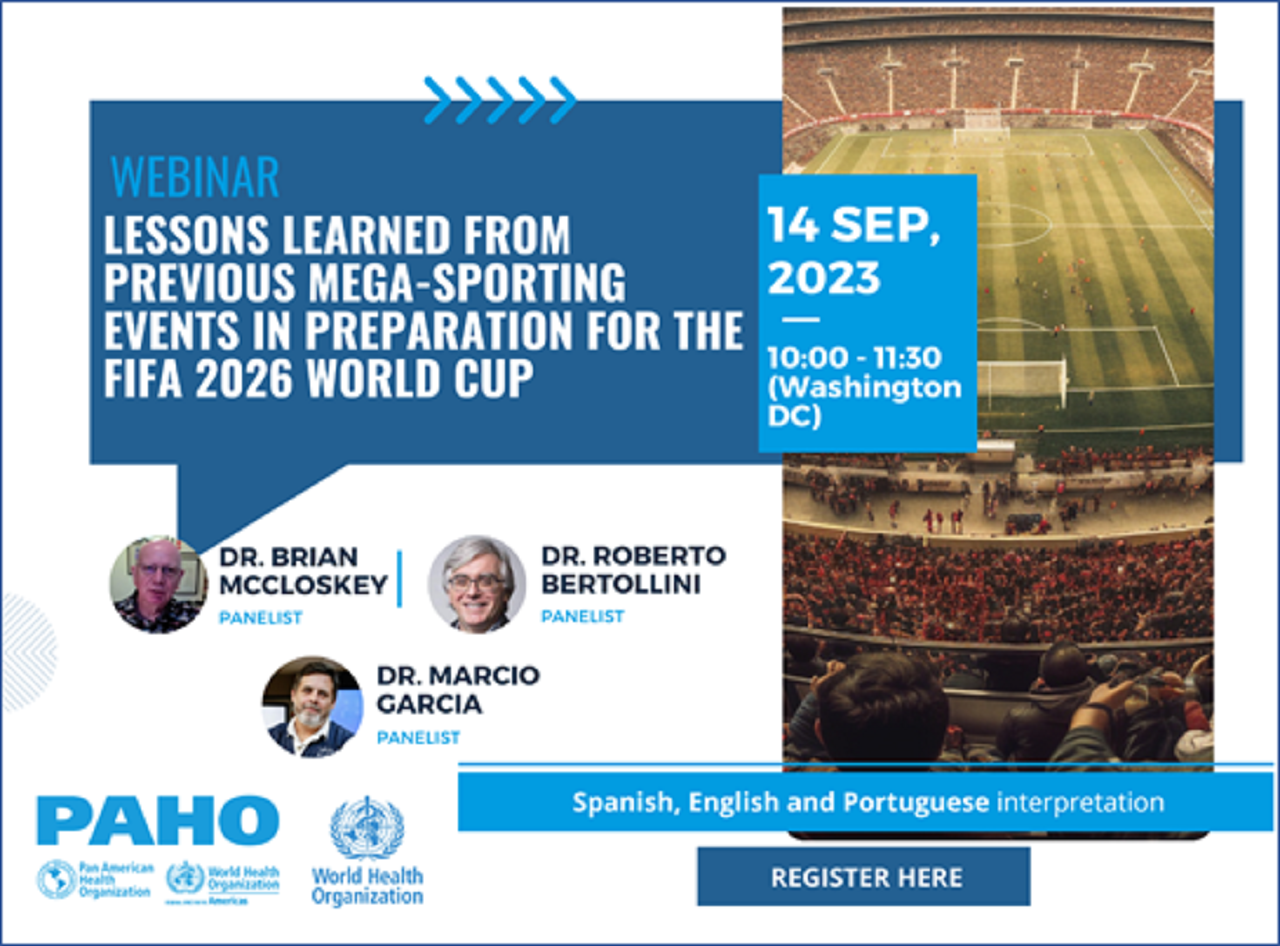
The FIFA World Cup, a global sporting phenomenon, is set to make history with its 2026 edition, hosted by Canada, Mexico, and the United States. In preparation for this monumental event, the Health Security Working Group in preparation for the FIFA World Cup 2026 organized a webinar on 14 September 2023 to share valuable insights from previous Mega-Sporting Eventsin health emergency preparation for the FIFA 2026 World Cup. These insights aim to provide experiences, good practices and insights to the three host nations with the aim of supporting a successful and memorable FIFA World Cup 2026.
Breaking New Ground
The FIFA World Cup is no stranger to the limelight, but the 2026 edition marks a historic first—three countries playing host. With this groundbreaking event on the horizon, a recent webinar has lit the path to victory.
WHO Support on health security
Behind the scenes, the Health Security Working Group in preparation for the FIFA World Cup 2026, a collaboration between WHO, PAHO, and the host nations, is working tirelessly to ensure public health security.
Tackling Challenges
Hosting mega-events brings unique challenges to public health. The scale, media scrutiny, and political interests demand a well-thought-out strategy to mitigate the risks of the spread of diseases, subsequently decreasing strain on health systems associated with such events in host countries. The lessons learned showcase how to navigate these hurdles successfully.
Game-Changing Insights
The webinar dove deep into experiences on health security planning for and management during past mega-sporting events, including the Tokyo 2020 Summer Olympics, Beijing 2022 Winter Olympics, 2014 FIFA World Cup, Rio 2016 Summer Olympics, and the 2022 FIFA World Cup in Qatar. Distinguished speakers shared their experiences and game-changing insights.
Leading the Charge
- Dr. Brian McCloskey kicked off the webinar with insights from Tokyo 2020 and Beijing 2022 Games.
- Dr. Marcio Garcia, the Department Director of Public Health Emergencies at the Ministry of Health, Brazil, shared experiences from Brazil's FIFA World Cup 2014 and Rio 2016 Games.
- Dr. Roberto Bertollini, the senior advisor for public health for the Minister of Health of Qatar, led a session on the Qatar FIFA World Cup 2022.
These experts unveiled strategies that could be the game-changer for FIFA 2026.
Winning Strategies
The webinar underscored the critical role of enhanced surveillance, from event-based data collection to syndromic and laboratory surveillance. Real-time information and daily Situation Reports keep teams in sync. Simulation exercises (SimEx) validate and enhance preparedness and response plans, and procedures, while After Action Reviews (AARs) identify and document best practices and challenges.Media monitoring and other mechanisms help counter misinformation and ensure accurate communication.
Setting the Stage for Success
In conclusion, the webinar emphasized the significance of strategic planning, effective communication, and stakeholder engagement for hosting successful mega-sporting events. Adequate surveillance, infrastructure, and sustainable practices are crucial for leaving a positive legacy. By incorporating these lessons, future host cities can showcase their culture and hospitality on the global stage, ensuring a safe and unforgettable event.
